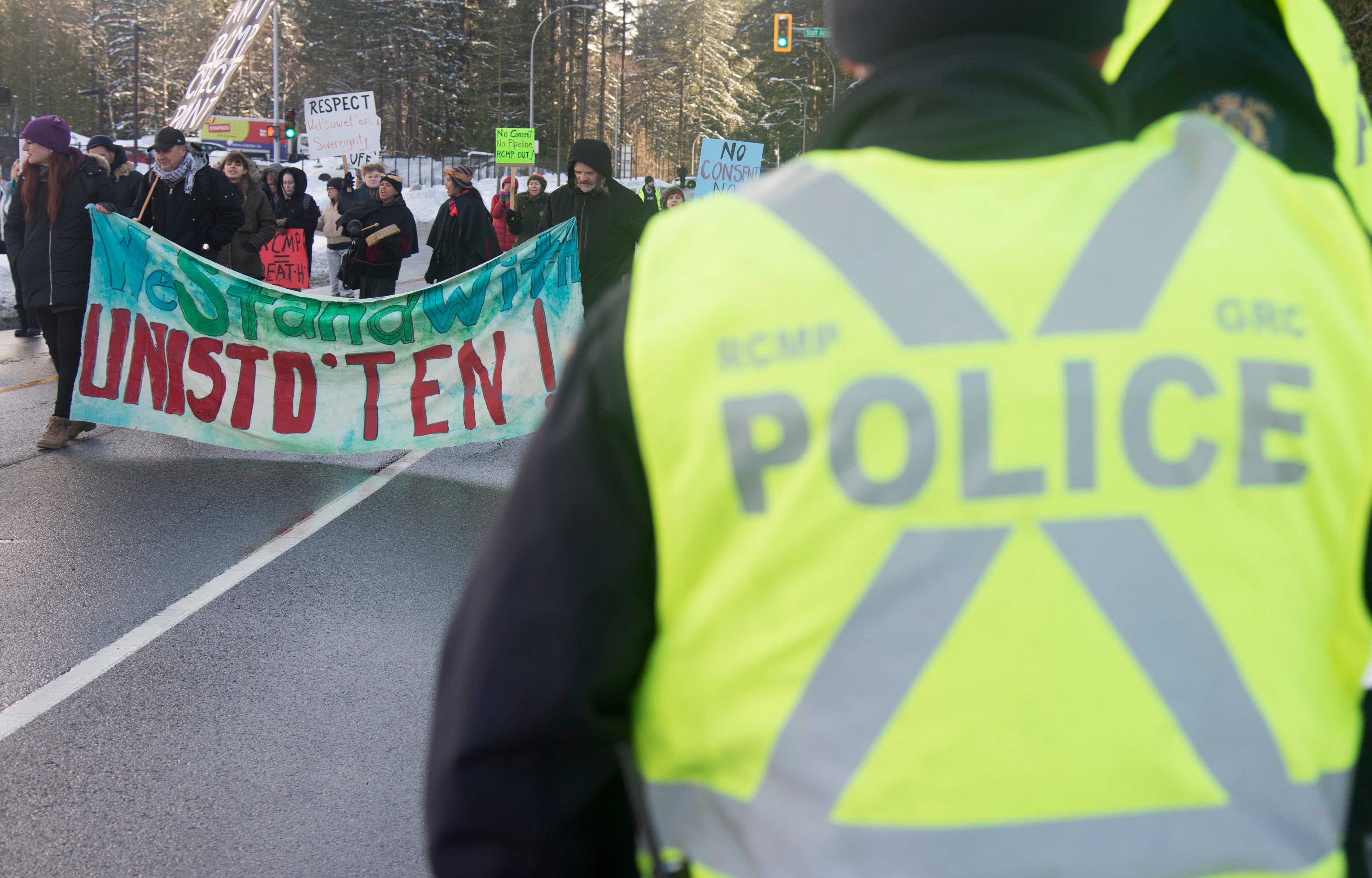Police forces should come clean about whether they’re using controversial facial recognition technology based on a giant database of pictures taken from Facebook, YouTube and other sites, says NDP MP Charlie Angus.
The RCMP told The Tyee Monday that it would neither confirm nor deny that it’s using Clearview AI’s technology, which allows police forces to check photos against a database of three billion images scraped from the web.
The force “does not comment on specific investigative tools or techniques,” an RCMP statement said. However, it added that the RCMP “continues to monitor new and evolving technology.”
Angus said that’s not good enough.
“I’m looking to get some answers on how the technology is being used, if it’s being used in Canada, but this is a warning flag that there is a huge regulatory gap on how facial recognition technology is being used,” he said.
The Tyee asked the RCMP if it used Clearview AI’s technology after a New York Times report said the company’s clients included at least one Canadian police force.
The corporation’s website also features an anonymous testimonial from a “Detective Constable” in “Canadian Law Enforcement.”
The Times report said more than 600 police forces — and some private companies — are already using the technology, which allows them to upload a photo and get to see any matching images on the web, along with links to where they appeared.
The article also noted the risks of abuse, invasion of privacy and false arrests.
“The weaponization possibilities of this are endless,” it quoted Eric Goldman, co-director of the High Tech Law Institute at Santa Clara University. “Imagine a rogue law enforcement officer who wants to stalk potential romantic partners, or a foreign government using this to dig up secrets about people to blackmail them or throw them in jail.”
Police forces say the technology helps solve crimes and increase public safety. The Indiana State Police, the first known Clearview AI customer, uploaded a grainy cellphone image and the database identified a suspect within 20 minutes, the Times reported. The suspect could not be found in state photographic databases.
The RCMP refused to elaborate when asked if its “monitoring” of new technologies like Clearview AI could mean it is already using the database.
The Tyee has found in previous reporting that the RCMP introduced technologies such as drones and its Project Wide Awake social media monitoring tool without telling the public or completing required privacy impact assessments. The force maintained the projects were in testing or design phases, so assessments aren’t required.
Angus, who was co-chair of the Standing Committee on Access to Information, Privacy and Ethics in the last Parliament, says he’s going to ask federal Privacy Commissioner Daniel Therrien to investigate “how and if ClearView AI is being used.”
The bigger problem is that powerful new tools of data-driven surveillance are so far beyond anything we’ve used in the past, said Angus.
“There is a legislative vacuum because of the speed the technology is moving,” said Angus. “We need to step into that vacuum and lay down some basic ground rules.”
The potential for abuse must be recognized, he says.
“We have huge battles underway with Indigenous activists and energy projects,” Angus noted. “And in my gut, I don’t feel that if these technologies were available that they wouldn’t be applied on a much larger scale against citizens who have a right to go out and protest if they don’t like a big megaproject.”
Angus grants that with judicial oversight, these technologies could help in criminal investigations.
But with a lack of up-to-date laws and court and parliamentary oversight, these technologies can criminalize protestors and lead to more surveillance, tracking and files on citizens who have committed no crimes.
Liberal MP Nathaniel Erskine-Smith, also former co-chair of the parliamentary privacy committee, shared Angus’s concerns.
“No police agency in Canada should be using facial recognition technology without proper oversight, a transparent set of rules to govern its use, and an algorithmic impact assessment to address obvious civil liberties and privacy concerns,” he said in a statement. “Until these measures are in place, our government should prohibit its agencies from using such technology.”
Latoya Farrell, a staff lawyer at the BC Civil Liberties Association, said that police use of the technology wouldn’t pass “the sniff test” in terms of respect for Canadians’ rights.
Farrell said research has shown facial recognition technologies generate false positive identifications of people of colour. And she notes CSIS has spied on the peaceful protest and organizing activities of Indigenous groups and environmentalists.
A spokesperson for Public Safety Minister Bill Blair, a former Toronto police chief, said the ministry does not comment on police technologies.
The Office of the Privacy Commissioner confirmed that no privacy assessment report for use of Clearview AI had been submitted.
Senior communications adviser Vito Pilieci told The Tyee the office would be following up with the RCMP on the matter.
Pilieci said the commissioner’s office had told the RCMP previously that it would need new privacy assessments if it used facial recognition on body-worn cameras and surveillance cameras placed on Parliament Hill.
Pilieci stressed that Therrien has called on the government to strengthen privacy laws, including the need to strengthen the process around privacy impact assessments. Currently, only a Treasury Board directive requires federal institutions to submit privacy assessments to the commissioner’s office. Any recommendations from the office are non-binding.
Angus praised the work being done by Therrien. But an independent commissioner may be needed to address an outdated approach to review of police technologies, he said.
The parliamentary privacy committee has little to do with police use of technology, he said. Traditionally this would be seen as meddling, he explained.
In July, The Tyee asked the RCMP if it was using or had bought any facial recognition technology. The RCMP said that any requests would come from detachments across the country. At that time, a spokesperson said there had been no requests. ![]()
Read more: Rights + Justice, Science + Tech
















Tyee Commenting Guidelines
Comments that violate guidelines risk being deleted, and violations may result in a temporary or permanent user ban. Maintain the spirit of good conversation to stay in the discussion.
*Please note The Tyee is not a forum for spreading misinformation about COVID-19, denying its existence or minimizing its risk to public health.
Do:
Do not: